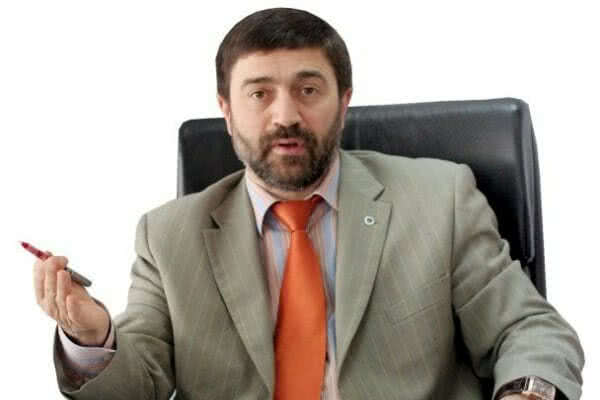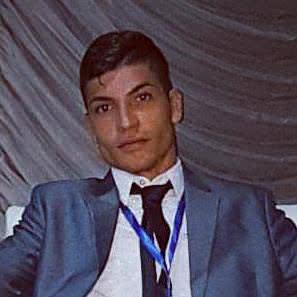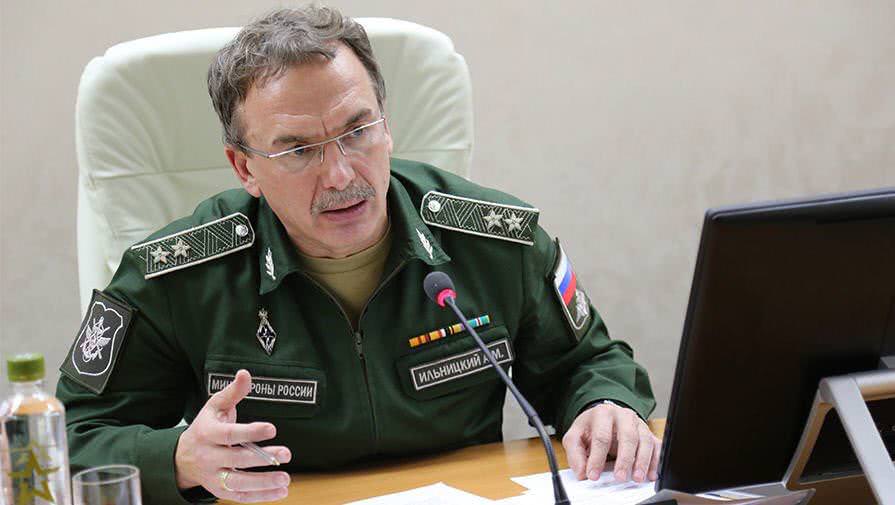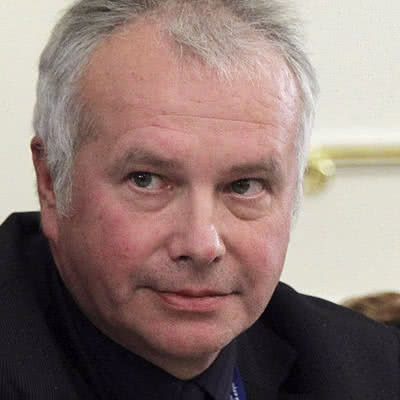Author: Vision & Global Trends – 9/05/2019
Iurie Roșca

In Moldova the situation is explosive. After the February 24 parliamentary elections, two months of sterile negotiations followed among the parties that entered Parliament. It is worth noting that the whole power in Moldova has been controlled by a criminal group, led by oligarch Vald Plahotniuc for several years. This group succeeded by using blackmail and bribery in order to subordinate all the institutions of the State power, including the parliamentary majority, the Government, the Prosecutor’s Office, the Constitutional Court and the judiciary power.
Yesterday, June 8, under the pressure of foreign partners – Russia and the US – a parliamentary majority was formed, consisting of the Party of Socialists which is obedient to Moscow (the informal leader of thid party is President Igor Dodon) and and the pro-Western electoral bloc ACUM (NOW). Parliament’s leadership was elected (President – former Prime Minister Zinaida Greceanii, Socialist Party Chairman), and the new government (Prime Minister Maia Sandu, the leader of the pro-European party PAS; Deputy Prime Minister and Interior Minister – Andrei Năstase, the leader of pro-Western party Platforma DA, ally with the party of the new Prime Minister).
On the same day, the Constitutional Court – which is the tool of usurpator Plahotniuc – issued a decision declaring that the head of the State is obliged to dissolve the Parliament and to announce early elections.
Overnight the Democratic People’s Party led by oligarch Plahorniuc blocked the offices of the Prosecutor’s Office, the Ministry of the Interior, and the Government. Today, June 9, the Constitutional Court dismissed – unlawfully – the President of the State, Igor Dodon, appointed Pavel Filip as the ad interim President; Pavel Filip is now an illegal prime minister and president at the same time. The situation is quite explosive. De facto, we have a duality of State power. It is extremely relevant that the US, Russia and the EU are in solidarity with the new parliamentary majority and with President Dodon. It is the only place in the World where Russia and the West share a common position.
Emanuel Pietrobon

I risultati delle elezioni parlamentari di febbraio avevano confermato la polarizzazione profonda del paese tra filorussi ed europeisti. A tre partiti, portavoce di tali istanze, l’elettorato aveva destinato oltre l’80% dei suffragi, ossia: il Partito dei Socialisti (31,15%), ACUM (26,84%) e il Partito Democratico (23,62%).
Nel post-elezioni, i leader dei tre partiti avevano iniziato difficili trattative per creare un governo di coalizione, portando infine PS e ACUM a decidere di estromettere i democratici, il cui leader, il magnate Vladimir Plahotniuc, è oggetto di numerose controversie nel paese.
Sabato 8 giugno, i due partiti sono infine riusciti a trovare un accordo, dopo tre mesi, formando la maggioranza parlamentare, ma la corte costituzionale è intervenuta direttamente nella questione optando per una decisione drastica e inaspettata: rimozione dell’attuale presidente del paese, Igor Dodon, del PS, in carica dal 2016, scioglimento del parlamento, e convocazione di nuove elezioni.
La situazione politica moldava è estremamente complicata: i partiti egemoni sono considerabili sostanzialmente de-ideologizzati, e la retorica proeuropeista spesso segue quella filorussa e viceversa, e gli interessi di partito e personalistici molto spesso prevalgono a detrimento del benessere collettivo, alla luce della significativa influenza giocata in politica da gruppi oligarchici legati ai media, all’energia, alla finanza, come Plahotniuc.
ACUM si inquadra in questo contesto: si tratta una di una coalizione politica nata nel 2018 su iniziativa di Andrei Nastase e Maia Sandu, due politici noti per le loro posizioni anticorruzione, antioligarchiche, ed europeiste, la cui fama nel paese è andata crescendo negli anni. La Sandu, proprio per via della sua immagine pulita, era stata scelta nella giornata di ieri come nuovo primo ministro del paese.
La stessa, nel 2016, aveva perso la corsa presidenziale di soli 80mila voti, accusando Dodon di brogli. I dissidi con il partito di Dodon sono stati comunque messi da parte per un bene comune e superiore: l’estromissione dei democratici.
Sebbene sia vero che la Moldavia ricopre un ruolo centrale nella divisione del potere tra il blocco occidentale e la Russia, perché inanellata tra Romania e Ucraina, abitata da una popolazione bilingue in cui il russo continua a rivestire un ruolo importante, e sede di due conflitti congelati in Transnistria e Gagauzia, è possibile che la crisi non sia segno dell’apertura di un nuovo fronte della guerra fredda 2.0 ma piuttosto prova eloquente della profonda degradazione del sistema-Moldavia.
I motivi che potrebbero avallare tale pista sono diversi: i socialisti di Dodon rappresentano gli interessi russi nel paese, la coalizione anticorruzione del duo Sandu-Nastase rappresenta invece gli interessi euroamericani, i democratici sono invece una completa emanazione, de-ideologizzata e personalistica, di Plahotniuc. La crisi che rischia di nascere, anche alla luce dell’invito a scendere in strada e manifestare con la forza da parte dei due partiti di governo, nuoce sia agli interessi russi che occidentali – e non è un caso che entrambi i paesi abbiano subito invitato le parti al dialogo, e promuove soltanto quelli del magnate.
Resta quindi da descrivere questa figura controversa. Plahotniuc è uno degli uomini più ricchi del paese, con un patrimonio stimato in oltre 300 milioni di dollari, negli anni è stato oggetto di accuse e inchieste per crimini gravissimi, ma rimaste senza seguito, dall’ordinazione di omicidi su commissione al riciclaggio di denaro sporco fino al coinvolgimento nel traffico di prostituzione.
Non ha ricoperto ruoli politici di spessore, ma è considerato, sia dall’opinione pubblica che dai grandi partiti, come l’eminenza grigia dietro i grandi eventi che hanno luogo nel paese. Gran parte delle sue fortune sono di origine ignota, un elemento che contribuisce ad alimentare le teorie del complotto sul suo conto, e avrebbe (il condizionale è d’obbligo) partecipazioni e quote che gli permetterebbero di influenzare tutti i settori-chiave dell’economia: turismo, energia, commercio, agricoltura, media, banche e finanza.
Il 7 aprile 2017 fece scalpore la notizia che un’operazione congiunta moldavo-ucraina avrebbe sventato un tentativo di assassinio nei suoi confronti, portando all’arresto di 17 persone in entrambi i paesi, legate all’ambiente del crimine organizzato, di cui un cittadino moldavo molto vicino ai servizi segreti russi. L’operazione è avvenuta sullo sfondo dei crescenti attacchi lanciati dal magnate contro la Russia, a suo dire accusata di esercitare un’influenza eccessiva e maligna sul paese.
La Moldavia non è solo terreno di scontro tra Occidente e Russia, ma anche tra gruppi di potere interni che sfuggono alle grandi logiche delle relazioni internazionali, Plahotniuc è l’esempio di ciò.
Andrej Il’nitskij

The United States is ready to declare Russia a hybrid war on all fronts, including economic, ideological, geopolitical and military measures. Moreover, the hybrid war of the USA&West against Russia is already underway. Its goal is the dismantling of the Russian state, turning it into a fail-state like Ukraine. “The war is already underway right now” – and this is not a “figure of speech” at all.
The proof of this thesis is in the report of RAND Corporation “Overextending and Unbalancing Russia. Assessing the impact of cost-imposing options ”-“ Over-tense and unbalanced Russia. Evaluation of the impact of cost overlaying options. ”
The fourth chapter of the Report describes six possible steps by the United States in the space of Russia’s geopolitical interests.
• Provision of lethal weapons and military assistance to Ukraine. • Renewed support for Syrian rebels. Stimulation of civil war there.
• Promotion of democracy in Belarus. Facilitating regime change in Belarus.
• Expansion of US ties in the Caucasus. The weakening of the influence of Russia. Use for tension between Armenia and Azerbaijan.
• Strengthening the US presence to Central Asia, reducing Russian influence there.
• Isolation of Transnistria. The United States proposes to create a “voltage arc” on the western borders of Russia – from the Black Sea to the Baltic. In this project, the main role is given to Ukraine and the post-Soviet Baltic countries, as well as plans to destabilize Transdniestria, Moldova and Belarus(!).
The proposed measures are so subtly cunning, cynical and clear, so different from those declared for example by US State Department, that it is worthwhile to dwell on them in a little more detail. We will give only a few ~ fragments from the text of the RAND report: In Ukraine: “Ukraine is certainly a more capable and reliable partner than other countries to which the United States provided deadly equipment — for example, the Afghan mujahedin in the 1980s. That is, to Ukraine, American strategists from RAND assign the role of an “anti-Russian bat”. They need Ukraine only for geopolitical terror against Russia! By destabilizing and weakening the pro-Russian forces in Moldova, the Americans intend to provoke tensions in Transnistria and seek the withdrawal of Russian peacekeepers from there, declaring something like: “A coup in Transnistria and the expulsion of Russian troops from the region will be a blow to the prestige of Russia …” Reading these lines of the RAND report – and it’s all written in this style – after the Czech anti-fascist who died in the dungeons of the Gestapo, I want to exclaim with Julius Fucik: “People, be vigilant! ..”.
Alexander Rahr

The republic of Moldova has witnessed a coup d‘etat, staged by the oligarch Vladimir Plokhatnyuk, who is trying to „privatize“ the Moldovian state. The interior conflict in Moldova is not between prowestern and prorussian forces, as similar struggles are characterized in other postsoviet states.
In Moldova, half of the electorate favours good relations with Russia, the other half of the population wants to join the EU. The leaders of both forces managed to forge a coalition in developing intensive cooperation with both, the EU and the Eurasian Union. That is the only way, a country like Moldova can prosper. A prorussian politician took over as head of parliament. The government, in turn, has been entirely given under the control of the prowestern forces. The coalition said it wanted to move first of all against corruption at home. But Plokhatnyuk, who had formed his own „force“ – the Democratic party – refused to fund himself out of power. He instrumentalized the country‘s Constitutional Court, which consists of judges hand-picked by Plokhatnyuk. The Court declared the ouster of the President and dissolved the parliament and government.
In Moldova, the corrupt oligarchical state bureacracy refused to step down and managed to stage an unprecedented coup against democratic institutions in the country. Moldova could be at the brink to a civil war; it is unrealistic, that the majority if ordinary people will support Plokhatnyuk. The latter will appeal to the West for help and try to present the coalition of his political opponents as a coup by Putin‘s Russia. Unfortunately, the US and the EU are tied in so many struggles with Russia that the West could chose not support the anti-oligarchical democrats.
Plokhatnyuk hopes for such a „card blanche“ from the West. The danger exists that the Moldovian conflict will end in a catastrophe, also because the West is too blind to understand what is going on in this country. Russia will not interfere, it has enough to do, to solve the conflict in Eastern Ukraine.
